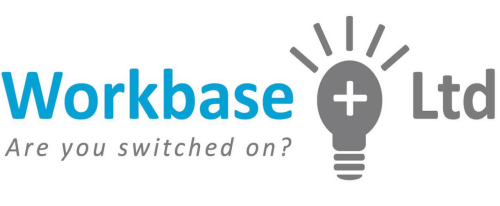


The employer duties started being introduced in stages from October 2012. The date your employer duties first apply is known as your ‘staging date’ and it’s based on the number of people in your largest Pay As You Earn (PAYE) scheme on 1 April 2012.
What is the effect on my Workforce?
You’ll need to assess your workforce to determine whether they’re treated as a ‘worker’. There are three different categories of worker, determined by their age and how much they earn.
What are my employer duties?
Your employer duties will depend on the types of worker you employ. You’ll need to automatically enroll some workers into a pension scheme and arrange membership for others. You’re also responsible for the ongoing maintenance of the scheme and have an obligation to keep certain records.
What is the effect on pension schemes?
You must register that you have an auto enrolment scheme in place with The Pensions Regulator (TPR) by at least five months after your staging date. You’ll also have to re-register every three years. The good news is, if you have an existing pension scheme, you can use this to meet your employer duties as long as it meets certain criteria.
What happens if I do nothing?
The employer duties are not optional. TPR will be responsible for ensuring that you comply with your employer duties. Although TPR’s approach will be to educate and encourage compliance, you’ll face substantial fines or even imprisonment if you don’t comply.
What is NEST?
You may have heard about NEST, the National Employment Savings Trust. NEST is a pension scheme that is primarily aimed at low to medium earners and small employers that don’t have access to a company pension scheme.
Identifying your staging date
TPR will tell you when your staging date is at least twelve months in advance. They’ll also send you a reminder three months before your staging date.
Bringing forward your staging date
You can choose to bring your staging date forward to coincide with other key company dates such as your end of year accounting. You’ll have to contact TPR in writing to confirm the new staging date you’ve chosen. This should be done at least one calendar month before the new chosen staging date.
How we can help
By working with you and understanding your workforce, we can create a bespoke approach for your company and help you meet your duties as an employer, now and in the future.
ASSESSING YOUR WORKFORCE
You’ll need to assess your workforce to determine whether they’re treated as a ‘worker’. This can also include contractors and/or agency workers.
The different types of worker
There are three different categories of worker, determined by their age and how much they earn.
Eligible jobholders – must be automatically enrolled into an auto enrolment scheme
Non-eligible jobholders – have the right to opt in to an auto enrolment scheme
Entitled workers – have the right to join a pension scheme
WHAT ARE MY EMPLOYER DUTIES?
Your employer duties will depend on the types of worker you employ.
The below summarises your employer duties for each type of worker.
1) Eligible jobholder
2) Non-eligible jobholder
3) Entitled worker
You can use postponement to defer the assessment of workers and your employer duties. The postponement period can’t be more than three months. The end of the postponement period is known as the deferral date and you must assess workers on this date.
What you must do if postponement is used
If you use postponement, you must provide workers with a postponement notice. This must be issued within six weeks and a day of your staging date, the worker’s first day of employment after your staging date, and the day that a worker becomes an eligible jobholder.
You must register with TPR that you have an auto enrolment scheme in place by at least five
months after your staging date. You’ll also have to re-register roughly every three years. The good news is, if you have an existing pension scheme, you can use this to meet your employer duties as long as it meets certain criteria.
There are three sets of criteria, namely, auto enrolment criteria, qualifying criteria and quality requirements. The following information relates specifically to contributions under the quality requirements.
Minimum requirements
The minimum contribution level required for an auto enrolment scheme is based on qualifying earnings. Qualifying earnings are a band of earnings of more than £5,772 and £41,865 or less. These figures are for the 2014/15 tax year and are expected to change each year. Qualifying earnings include salary, wages, overtime, bonuses, commissions, statutory sick pay, statutory maternity pay, ordinary or additional statutory paternity pay and statutory adoption pay. To allow you to spread the cost of your employer duties, you can phase in the minimum contributions.
WHAT IS THE EFFECTS ON PENSION SCHEMES?
Certification
As an alternative to using the qualifying earnings definition, you can choose to use certification. A certificate can cover all workers or groups of workers. For example, you can use one certification basis for one group of workers and a different certification basis for other workers. The contribution levels for certification can be phased in over six years from October 2012 and there are three certification options available.
Certifying in advance
You can certify for up to 18 months in advance. You must re-certify at least every 18 months or sooner if there is a ‘significant change’ such as: changes to the scheme contribution level or a company takeover/merger.
PENALTIES
TPR will impose penalties if you don’t comply with your employer duties, for example, failing to automatically enroll eligible jobholders or failing to refund contributions to those who have opted out. Similarly, you can’t encourage jobholders to opt out of the pension scheme or encourage candidates to do so during the recruitment process. The type of penalties are listed below:
Non-statutory action
TPR can issue guidance and instruction by telephone, email, letter and in person. Or TPR can send a warning letter confirming a set time frame for compliance with the duties.
Statutory notices
Statutory notices can direct you to comply with your duties and / or pay any contributions you have missed or are late in paying. TPR have further discretionary powers which allow us to estimate and charge interest on unpaid contributions and direct you to calculate and / or pay unpaid contributions.
Penalty notices
TPR can issue penalty notices to punish persistent and deliberate non-compliance. A fixed penalty notice will be issued if you don’t comply with statutory notices, or if there’s sufficient evidence of a breach of the law. This is fixed at £400 and payable within a specific period. They can also issue an escalating penalty notice for failure to comply with a statutory notice. This penalty has a prescribed daily rate of £50 to £10,000 depending on the number of staff you have.
TPR can issue a civil penalty for cases where you fail to pay contributions due. This is a financial penalty of up to £5,000 for individuals and up to £50,000 for organisations. Where employers fail to comply with a compliance notice or there is evidence of a breach, they can issue a prohibited recruitment conduct penalty notice. This penalty has a prescribed rate of £1,000 to £5,000 depending on the number of staff the employer has. They aim to fully recover all the penalties that they issue.
Court action
TPR can take civil action through the court to recover penalties. Employers who deliberately and willfully fail to comply with their duties may be prosecuted. TPR can also confiscate goods where there is a criminal conviction and restrain assets during criminal investigations.
Appealing against a penalty
You have a right to appeal against any penalties imposed by TPR and must do so in writing. You can find out more about auto enrolment and the role of TPR on their website at www.thepensionsregulator.gov.uk/pensionsreform
THINGS TO REMEMBER
HOW CAN WE HELP YOU - meet your duties
By working closely with you and understanding your workforce and your needs we can:
HERE TO HELP YOU
Managing your finances effectively can be a confusing business. The financial world is complex, and making the right decisions for your future can seem a daunting prospect. We take pride in offering a personal service that takes into account your individual circumstances. Your financial situation is unique, so we work hard to understand your goals and aspirations, and make financial recommendations based on a comprehensive and detailed analysis of your needs.
Through our comprehensive offer, we can provide you with advice on every aspect of financial planning:
When it comes to auto enrolment, many employers have already benefited from dealing with a qualified and authorised adviser, to help them meet their legal obligations in this complex area.
We look forward to helping you.
Forward Planning ...
There are times when it can prove difficult to establish your true financial needs, which is why we provide advice in a friendly and understandable manner. Our business has been built based on honesty, reliability and an excellent service. Many of our clients have personally trusted us for over 25 years and throughout this period we’ve developed many good friendships.
